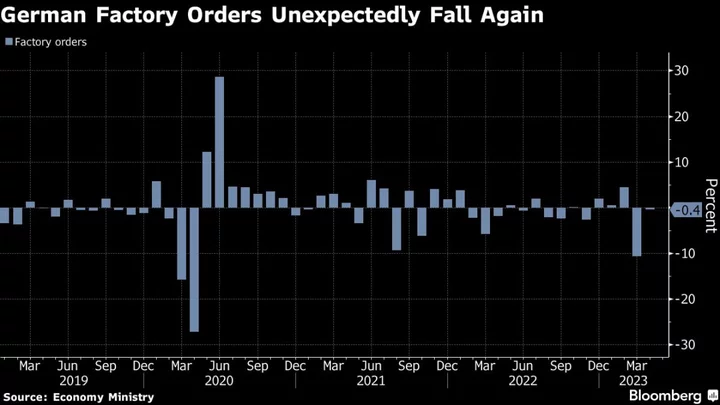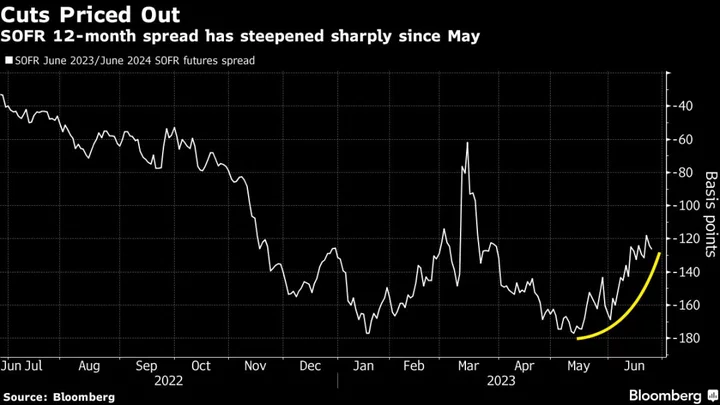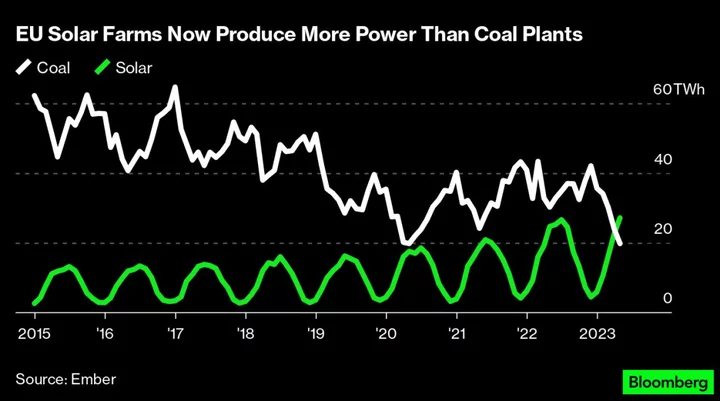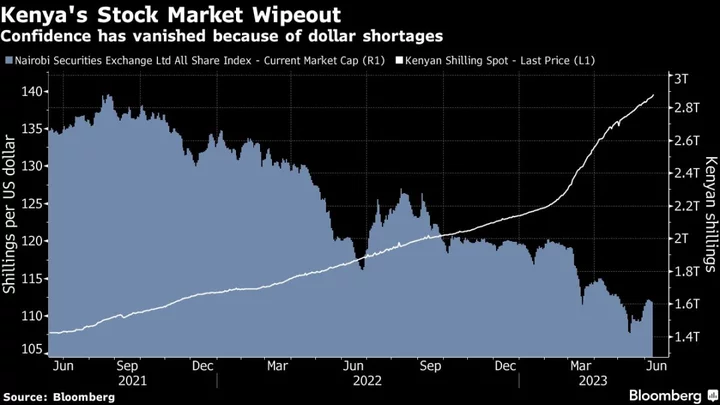Taiwan’s central bank will likely keep rates on hold for the first time since 2021 at its board meeting Thursday as policymakers shift their priority away from inflation to bolstering the flagging economy.
Some 20 out of 24 economists surveyed by Bloomberg expect the key rate to remain unchanged at 1.875%, with the remainder seeing a hike to 2%.
“We believe the central bank will focus more on stabilizing growth this time and refrain from raising interest rates further,” Bank of America economists Miao Ouyang and Helen Qiao said in a note, citing the export-driven economy’s slide into recession after nine consecutive months of export declines.
Taiwan policymakers had hiked at their five most recent meetings, but the Federal Reserve’s decision to hold rates unchanged Wednesday and lower-than-expected inflation data for May have eased pressure for another rise in borrowing costs. Taiwan’s economy is also in recession, shrinking 2.9% in the January-to-March period, the worst performance since the global financial crisis, according to data released late May, when the government cut its growth outlook.
Still, the central bank has surprised before, unexpectedly raising rates in March. Minutes of that meeting showed policymakers saw stubbornly high inflation as a bigger concern than the slowing economy, and while price gains have slowed, many prices are noticeably higher than before.
“It is worth noting that core inflation and services inflation have remained sticky, supported by steady consumption demand and a tight labor market,” Taimur Baig and Radhika Rao of DBS Bank wrote in a note. They said it could not be “ruled out” that the central bank would pursue “further policy normalization” at the meeting to “ensure long-term price stability”.
Taiwan policymakers would also have faced a conundrum if the Fed had hiked its target rate of 5% to 5.25% overnight. That would have potentially increased outflows from the Taiwan dollar to the greenback, pushing up the cost of imports. As it is, the Fed warned there may be more tightening to come.
Author: Jennifer Creery, Chien-Hua Wan and Betty Hou









